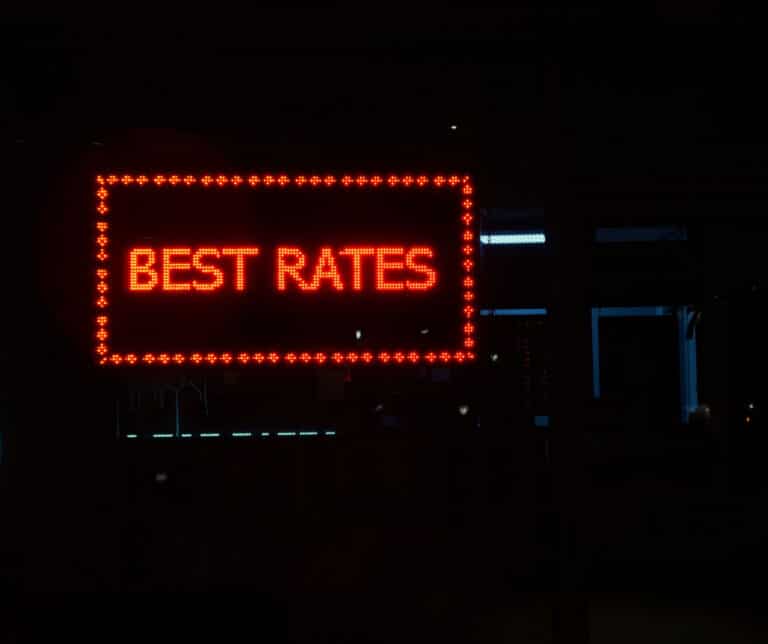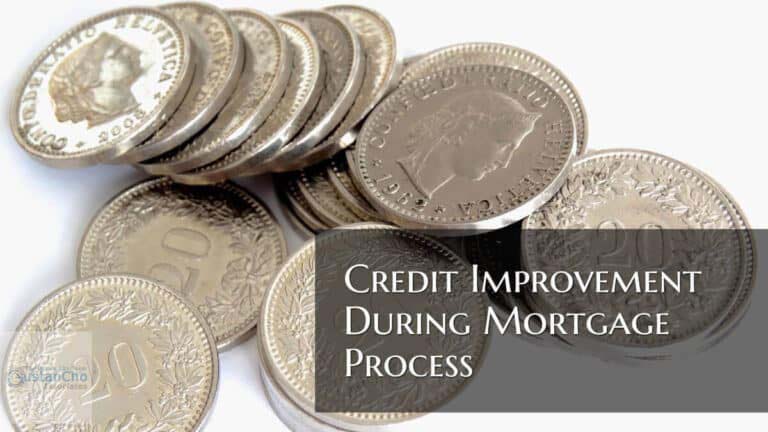VA Collections Mortgage Guidelines on VA Home Loans
In this blog, we will discuss and cover VA collections mortgage guidelines. We will discuss how you can qualify for VA loans without paying outstanding collection accounts. The Department of Veterans Affairs has recently updated the VA collections mortgage guidelines on VA home loans. Gustan Cho Associates specializes in VA mortgages. VA guidelines are constantly changing. Dale Elenteny of Gustan Cho Associates said the following:
We will update you on VA collection guidelines. On May 26, 2019, VA introduced a new guideline surrounding non-medical collections reporting to your credit report.
This article will detail the old rule versus the new one. We will discuss how this affects thousands of veterans nationwide when buying a home. This blog will discuss the recent changes in the VA collections mortgage guidelines on VA home loans.
VA Collections Mortgage Guidelines Versus Lender Overlays
Collection accounts and VA mortgages. Collections are past-due accounts in a collection status on your credit report. Collections do negatively impact your credit score. The more collections you have, the harder it will be for your credit score to recover. The VA does not necessarily require the veteran to pay off collections to enter into a mortgage. However, there must be an amount factored into your debt-to-income ratio.
Old VA Collections Mortgage Guidelines
The old rule on VA loans:
- For all non-medical collection accounts reporting on a veteran’s credit report, you used to take 5% of the amount owed as a monthly payment against your overall debt-to-income ratio
- For example, if you have a collection from a past due credit card for $2,350, you used to use a payment of XX against your debt-to-income ratio.
- This was often referred to as the 5% rule (this 5% rule is still in place for FHA mortgages)
New UPDATED VA Collections Mortgage Guidelines on VA Home Loans
The new VA collection guideline:
- As of May 26, 2019, the HUD guideline has changed on VA mortgages regarding how collections are viewed for debt-to-income purposes
- The mortgage company now must verify if there is a minimum payment associated with a non-medical collection account
- The lender must complete a credit supplement to verify if any payment is due or if any repayment plan is put in place
- Assuming an amount due as a monthly payment, it must be factored into your overall debt-to-income ratio.
This can harm your overall mortgage qualifications.
Monthly Payment on Outstanding Collections
A payment associated with the collection account can decrease your purchasing power of buying your home with a VA loan.
This could adversely affect if the minimum payment due exceeds 5% of the collection amount. This will then decrease your purchasing power. This is because you will qualify for a lower overall monthly payment. On the flip side, this can also help some veterans.
Credit Payment History on Credit Report
If the credit supplement supports a $0 payment, the 5% of the amount due will not be turned back into your debt-to-income ratio. Alex Carlucci of Gustan Cho Associates said the following:
A $0 payment will increase your buying power. Being 100% open and honest with your loan officer is now more important than ever.
In the beginning stages, the loan officer will not know that payment is associated with your collection accounts. This can affect you once you are under contract.
Paying Old Collection Accounts With Written Payment Agreement
If any repayment plan is implemented, you must tell your loan officer out front so that amount is factored into your pre-approval. There is no rhyme or reason for how collections report to your credit report. Many collection agencies are small businesses that purchase bad debt and attempt to collect those funds. The small companies report to credit bureaus in funky ways. Sometimes you will see an amount due and payment lining up the same. Borrowers with more than likely will not have a $1000 a month monthly payment, but the credit report can reflect a $1,000 monthly payment. The credit supplement will get the mortgage underwriter clarification on how much is done if any amount is due.
Qualifying For VA Loans With Mortgage Lender With No Overlays
Small changes like this can seriously impact a veteran’s qualifications. Little changes like this happen all the time in the mortgage industry. It is important to find a lender, such as Gustan Cho Associates, who is up-to-date on mortgage guidelines.
VA Loan Eligibility with Unpaid Collections
Can You Be Eligible for a VA Loan with Unpaid Collections?
Yes, qualifying for a VA loan with unpaid collections is possible. The Department of Veterans Affairs (VA) does not have a strict requirement for all collections to be paid off before approving a home loan. However, lenders may have their own guidelines and overlays, which can affect your eligibility based on the presence and amount of unpaid collections. The impact of unpaid collections varies depending on the lender’s policies and the specifics of your financial situation.
Factors Lenders Consider:
- Type of Collections: Medical collections are generally viewed more leniently than other collections.
- Amount of Debt: High amounts of unpaid collections must be addressed before loan approval.
- Recency: Recent collection accounts are scrutinized more closely than older ones.
- Overall Credit Profile: Your credit score and financial history are significant in decision-making.
Strategies for Managing Unpaid Collections Before Applying for a VA Loan
- Review Your Credit Score:
- Obtain a copy of your credit report from all three major credit bureaus (Experian, Equifax, and TransUnion).
- Identify and verify all collection accounts listed.
- Negotiate with Creditors:
- Contact the creditors or collection agencies for payment arrangements.
- Request that settled accounts be marked as “paid” or “settled” on your credit report.
- Prioritize Medical Collections:
- Focus on resolving non-medical collections first, as medical collections are often treated more leniently by lenders.
- Provide Explanations:
- Prepare a letter of explanation for each collection account. Please include the reason for the collection, steps taken to resolve it, and any relevant documentation.
- Seek Professional Help:
- Consider talking with a credit counselor to create a strategy for addressing collections and improving your credit profile.
- Enhance Your Credit Rating:
- Pay down other debts to enhance your debt-to-income ratio.
- Ensure all other bills and credit accounts are paid on time.
- Save for a Larger Down Payment:
- A higher down payment can offset the risk lenders perceive due to unpaid collections.
Real-Life Examples of VA Loan Approvals with Unpaid Collections
- Case Study 1: Medical Collections
- Background: A veteran applied for a VA loan with several unpaid medical collections totaling $5,000.
- Strategy: The veteran explained the medical issues that led to the collections and demonstrated consistent on-time payments for other credit obligations.
- Outcome: The lender approved the loan without requiring the medical collections to be paid off, recognizing the circumstances and the veteran’s stable financial behavior.
- Case Study 2: Negotiated Settlements
- Background: An active-duty service member had unpaid credit card collections of $8,000.
- Strategy: The service member negotiated settlements with the creditors, reducing the total amount owed to $4,000 and ensuring the accounts were marked as “settled” on their credit report.
- Outcome: The lender approved the VA loan, considering the proactive steps taken to resolve the collections and the improved credit score resulting from the settlements.
- Case Study 3: High Credit Score Offset
- Background: A retired military officer with a high credit score of 750 had unpaid utility collections totaling $1,500.
- Strategy: The officer maintained a high credit score by paying all other debts on time and keeping credit utilization low. They also provided a letter of explanation for the utility collections, citing a dispute with the utility company.
- Outcome: The lender approved the VA loan, as the high credit score and overall strong credit profile outweighed the impact of the unpaid utility collections.
Conclusion
While unpaid collections can pose a challenge when applying for a VA loan, they do not automatically disqualify you from eligibility. Understanding the factors lenders consider, employing strategies to manage unpaid collections, and learning from real-life examples can improve your chances of securing a VA home loan. Always consult your lender to understand their specific requirements and seek professional advice.
Frequently Asked Questions (FAQs)
1. What are VA collections guidelines for home loans?
The VA collections guidelines for home loans refer to the standards and requirements of the Department of Veterans Affairs (VA) for handling and assessing collection accounts when a borrower applies for a VA home loan. These guidelines help determine how outstanding collections affect a borrower’s loan eligibility.
2. How do collection accounts impact VA loan approval?
Collection accounts can impact VA loan approval, but the effect depends on the type and amount of the collections. The VA does not have a specific requirement for paying off collections. Still, lenders may have overlays requiring certain collections to be addressed before loan approval. Significant or recent collection accounts may need to be explained or resolved to satisfy lender requirements.
3. Does the VA require borrowers to pay off collections?
The VA does not mandate that all collections be paid before approving a home loan. However, lenders may have overlays requiring certain collection accounts to be paid or settled before closing. It’s essential to consult with your lender about their specific requirements.
4. What types of collections are considered by the VA?
The VA considers all collection accounts, including medical, credit card, and utility collections. However, each collection type’s impact on loan approval can vary. Medical collections are often viewed more leniently than other types of collections.
5. How do medical collections affect VA loan approval?
The VA and most lenders typically treat medical collections more leniently. They are generally only required to be paid off after loan approval. However, the medical collections are significant or recent. In that case, they may still need to be addressed or explained to the lender’s satisfaction.
6. Can I avail of a VA loan with unpaid collections?
Yes, it is possible to get a VA loan with unpaid collections. The VA does not explicitly require all collections to be paid off. However, the lender may have their own guidelines and require certain collections to be resolved. Each lender’s requirements vary, so checking with your lender is important.
7. What is a lender overlay, and how does it affect VA collections?
A lender overlay is an additional requirement the lender sets that exceeds the VA’s guidelines. These overlays can include stricter rules for handling collection accounts. For example, a lender may require all collections over a certain amount to be paid off or settled before approving a VA loan.
8. How should I handle collection accounts when applying for a VA loan?
When applying for a VA loan, being proactive about handling collection accounts is crucial. Here are some steps to take:
- Review your credit report and identify all collection accounts.
- Contact the creditors to negotiate settlements or payment plans if necessary.
- Keep documentation of all communications and settlements.
- Provide a letter of explanation for any significant or recent collections.
9. Will paying off collections improve my chances of getting a VA loan approval?
Paying off collections can improve your chances of VA loan approval, especially if the lender has specific overlays requiring collections to be resolved. It can also help increase your credit score and benefit loan approval. However, consulting with your lender to understand their specific requirements is important.
10. How can I explain collection accounts to the lender?
When explaining collection accounts to the lender, be honest and provide detailed information. Include the following in your explanation:
- The reason for the collection account.
- Steps you have taken to resolve the issue.
- Any payment plans or settlements in place.
- Documentation supporting your explanation.
11. Can I qualify for a VA loan with recent collection accounts?
Qualifying for a VA loan with recent collection accounts can be challenging, but it is not impossible. Lenders may require a thorough explanation of the recent collections. They may need to see evidence that the issue has been resolved or is being addressed. Each lender’s requirements will vary, so checking with your lender is essential.
12. Do charge-offs need to be paid for VA loan approval?
The VA does not explicitly require charge-offs to be paid for loan approval. However, lenders may have their own guidelines and require charge-offs to be addressed before closing. It’s important to consult with your lender about their specific charge-off requirements.
13. How does the VA view settled collection accounts?
Settled collection accounts are generally viewed more favorably than unpaid collections. Settling a collection account demonstrates to the lender that you have taken steps to address your financial obligations. Documentation of the settlement can also help improve your chances of loan approval.
14. Should I work with a credit counselor before applying for a VA loan?
Working with a credit counselor before applying for a VA loan can be beneficial, especially if you have multiple collection accounts or other credit issues. A credit counselor can guide you in creating a plan to address your collections and improve your overall credit profile, increasing your chances of loan approval.
15. Can a high credit score offset the impact of collections on VA loan approval?
A high credit score can offset the impact of collections on VA loan approval. Lenders consider the overall credit profile and a high credit score can indicate responsible credit management despite past collection accounts. However, depending on the lender’s guidelines, significant or recent collections may still need to be addressed.
The Team at Gustan Cho Associates is available seven days a week, mornings and evenings. We are always here to assist you with mortgage questions.
Gustan Cho Associates is a NO LENDER OVERLAYS lender specializing in lower credit score qualifications. There are very few situations we have not seen before. We look forward to assisting you in buying your dream home!










